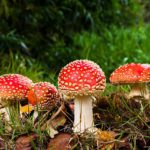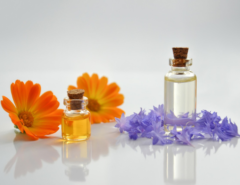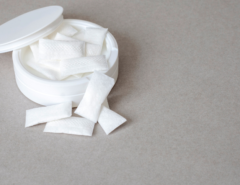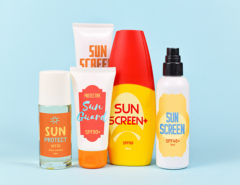Mushroom edible products are gaining popularity for their “natural” appeal and health claims. Hidden within this trend are serious risks that consumers need to understand before taking a bite or sip. There are two main types of mushrooms used in edible products: Amanita and Psilocybe.
Most importantly, these products are sold in an unregulated market. This means that products are not approved by the U.S. Food and Drug Administration (FDA) and may contain unspecified and unknown ingredients or contaminants. These products are available online, at gas stations, in smoke/vape shops, etc.
Mushroom edible products include candy, chocolate, coffee, and much more. It is recommended to start with small doses to see how your body will react. Keep in mind the time it takes for the effects of various products to set in before deciding to take more.
Types of Mushroom Edible Products
 Amanita muscaria: the Amanita mushroom is red with white spots. One of its active compounds is muscimol, which when ingested causes:
Amanita muscaria: the Amanita mushroom is red with white spots. One of its active compounds is muscimol, which when ingested causes:
- Hallucinations – sensory experiences (sight, hearing, touch, smell, or taste) that appear real but are not actually happening.
- Changes in mood.
- Changes in perception (ability to see, hear, or become aware of something around you).
- Altered behavior.
You will start to feel effects in 30-60 minutes, with peak effects (when the substance reaches the maximum effect on the body) happening 2-3 hours after consuming the product. The effects will typically last 4-6 hours. You may continue to feel some mild effects for up to 24 hours.
Psilocybe: this species of mushroom contains psilocybin, which is a Schedule 1 substance, meaning it is considered by the U. S. Drug Enforcement Administration as a controlled substance with high potential for abuse and no accepted medical use. Psilocybin is also commonly known as “magic mushrooms.” When ingested, you may feel the following effects:
- See colors, shapes, or scenes, or hear things that aren’t real.
- Lose your sense of time and space.
- Experience a dream-like state where you have visions or relive memories.
- Experience a feeling of having no boundaries or of being “one with the universe.”
Experiencing these effects can be pleasant. It can also be frightening and cause panic.
Other potential, dangerous effects of psilocybin:
- Being less aware of surroundings, which can lead to unsafe driving or walking into traffic.
- Increased blood pressure and heart rate.
- Agitation and confusion.
- Nausea and vomiting.
- Serious reactions from mixing with antidepressants and other medications with more risk for confusion and seizures.
You will usually feel effects in 1-2 hours after ingestion. Effects usually last 4-6 hours but can last as long as 12 hours.
Notable Cases Involving These Products
There was an outbreak of severe symptoms involving products which were sold as mushroom edibles from the company Diamond Shruumz in 2024. The FDA identified 180 illnesses linked to the edibles in 34 U.S. states, including 73 hospitalizations and three possible deaths. People consuming these products experienced symptoms such as:
- Seizures
- Loss of consciousness
- Confusion
- Abnormal heart rates
These products were taken off the market. This outbreak served as an important reminder that these products are not regulated, therefore users didn’t know what they were actually consuming. The products were marketed as containing a proprietary blend of mushrooms. Laboratory tests revealed five additional compounds in product samples.
Poison centers are available to help if someone accidentally ingests a mushroom edible product. We can also assist if someone develops unexpected symptoms such as confusion, rapid heart rate, and chest pain. The Maryland Poison Center can be reached 24/7 by calling 1-800-222-1222. You’ll speak to a trained pharmacist or nurse, and your call is free and confidential.





Leave a Reply